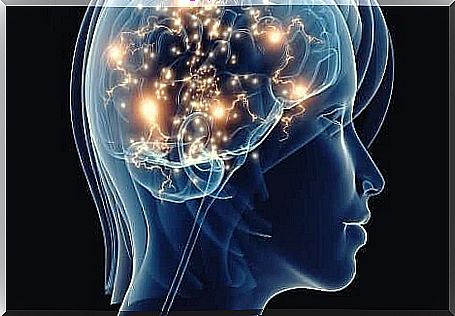Untreated Depression And Its Effect On Your Brain

Untreated depression that becomes chronic and doesn’t go away for years can alter your brain. Recent studies indicate that the changes caused by this mental illness affect brain structures such as the prefrontal cortex.
This in turn affects, among other things, the patient’s ability to make decisions, solve problems and analyze situations.
Neuroinflammation, reduced oxygen supply to the brain, and changes in neurotransmitter production, the brain processes manifested as a result of conditions such as major depression, can reduce functionality in many areas of the brain to the point of neurodegeneration.
However, these changes will become apparent when the patient has suffered from this psychological problem for 9 to 12 months. You may now be wondering why some people leave their depression untreated.
Why does a person not seek professional help to stop their suffering? It is especially worth noting that there is not one right answer to these questions. It is actually difficult to define the complexity of this mood disorder.
Some patients even believe that they will never get better. Their own illness becomes a kind of shield and keeps them from seeking help. Others have misconceptions about therapy or simply don’t believe in it. And others just don’t dare admit they have a problem.
On the other hand, some people just don’t have the resources or social support to ask for help. Unfortunately, living with an untreated mental illness is common. The consequences of this are often serious.

The consequences of untreated depression
Many people know what depression is either because they have suffered from it in the past or are suffering from it now, or because someone close to them has experienced it. The physical, social and behavioral implications are well known at this point. However, what many people still don’t know are the effects it has on the brain.
In an interesting study by Dr Victor H. Perry, professor of neuropsychology at the University of Southampton, USA, Perry talks about this important fact.
It has been proven that people with severe depression are more likely to suffer from it for a longer period of time. Relapse is not uncommon, which is why some patients spend decades facing this harsh reality. Untreated or persistent major depressive disorder has a neurodegenerative effect.
Several areas of the brain shrink in untreated depression
A study by Dr. Dilara Yüksel of Istanbul University shows the brain changes caused by major depressive disorder when left untreated or when patients fail to respond to treatment within three years. The main consequence of this is the reduction in different structures such as the:
- Prefrontal cortex
- thalamus
- hippocampus
- Amygdala
These areas play important roles in memory, emotion processing, and executive functions such as problem solving, attention, organization, and response to the environment.
C-reactive protein and inflammation
In addition, untreated depression has a biological effect: it increases neuroinflammation. dr. Jeff Meyer of the University of Toronto Mental Health Services analyzed data from 80 patients over 10 years.
Half suffered from major depressive disorder but had never received treatment. The goal was to discover the effects on the brain of not treating this condition.
A significant C-reactive protein accumulation in the prefrontal cortex, hippocampus and amygdala was observed. This type of protein has an inflammatory effect, something that undoubtedly expands the pharmacological treatment possibilities in such specific cases.
Decreased oxygen supply to the brain
This is definitely the most striking fact. Works like those of Dr. Tomohiko Shibata of the University of Tokyo show that untreated mood disorders lead to mild hypoxia, which is a reduction in oxygen supply to the brain.
As a result, the patient may feel constantly tired and agitated, have difficulty concentrating and suffer from migraines. The effect is visible. That’s why doctors today use hyperbaric oxygen therapy to relieve symptoms.

We can conclude that it is clear that major depression can have a very harmful effect on the brain health of the patient.
The condition actually alters the functionality of the brain, which can exacerbate discomfort, increase the likelihood of other cognitive problems, and even cause a higher resistance to treatment.
Fortunately, scientists have studied new techniques. For example, there is non-electroconvulsive transcranial magnetic stimulation (TMS), which notably improves the patient’s well-being.
The magnetic pulses targeting the problem areas improve both their biochemistry and their connectivity. According to some experts, it’s like “resetting” the brain. We will definitely keep an eye on these new hopeful breakthroughs.









